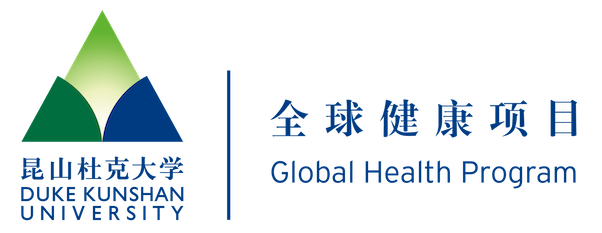
Ms. Zhangyang Pan is a 2024 graduate of the Master of Science in Global Health program at Duke Kunshan University (DKU). A mother of a four-year-old, former journalist, and seasoned corporate communicator, she brings over a decade of experience in corporate communications and public affairs at multinational pharmaceutical companies. While many of her peers pursued MBA programs to advance their careers, she chose to step into the field of global health—marking a bold transition into the second chapter of her professional journey.
Leavingthe Top 500

Many people ask me what kind of courage it takes to leave a Fortune 500 company at 36 and go back to full-time study. After thinking about it, I wouldn’t call it courage—maybe it’s more about having “strong support”. For instance, having a family that supports you unconditionally, and not carrying the burden of loans. Beyond that, it comes down to a genuine passion for healthcare. It touches everyone’s life, and it’s full of difficult choices—matters of life and death, of medical ethics, of policy trade-offs, and of navigating uncharted paths in innovation.
Compared to taking the more conventional route of an MBA for a mid-career upgrade, I chose something less mainstream. Through this new academic journey, I hoped to find something truly different.
The first is about establishin a different mindset. I want to break free from the established frameworks that shape how I think and operate within the enterprise, cultivating a fresh perspective—or simply put, gaining new insights. Secondly, I aim to challenge myself in a field outside my previous professional background. My academic journey began with a bachelor’s in political science, followed by a master’s in journalism. Yet, even after a decade in the healthcare industry, the medical and business knowledge I’ve acquired through fragmented learning remains unstructured. That’s why I’m eager to pursue systematic, professional training in healthcare. Meeting different people comes the third aspect. My network has largely been confined to professionals in the pharmaceutical sector. Now, I want to connect with a broader range of individuals in healthcare—from university researchers and international organization experts to policymakers and governmental advisors shaping healthcare strategies.
I believe these “differences” will also make me a “difference”.
An Inclusive, Interdisciplinary Program

The Master of Science in Global Health program at Duke Kunshan University (DKU) is both inclusive and highly interdisciplinary.
I’m neither the oldest student in the cohort nor the only one with years of work experience. My classmate Sophie Kuve from Kenya, for example, is a mother of two middle schoolers and had worked for many years as a microbiology lab analyst before joining the program. From the class ahead of me, Rui Wang is a former diplomat who later worked in public health NGOs with extensive experience in tobacco control. Another alumna, Yiqing (Ammy) Jin, once ran her own restaurant; at DKU, she focused her research on how cooking oil temperature affects food nutrition. Drawing on our prior professional and personal experiences, each of us found our own direction and passion within this program.

the Duke Global Health Institute
Both the courses offered at DKU and those at Duke University in the U.S. are thoughtfully designed to be practical and interdisciplinary. For example, in the course Global Health and Migration, our professor invited professionals from international organizations to share the real-world challenges they face in the field. Many case studies throughout the program showed that even in designing a seemingly straightforward public health intervention, one must consider international politics, regulatory environments, geographic factors, cultural customs, and individual behaviors and motivations. It’s only through crossing disciplines that we can fully grasp how health is interwoven with everyday life.
Over the past year and a half, I’ve also achieved two things I never thought possible before. Before I came back to study, I couldn’t have imagined myself conducting public health research or publishing papers. But for my first research project, drawing upon both my professional experience in health communication and my personal journey as a parent navigating the immunization decision-making, I investigated how parents seek out vaccine-related information and what influences their decisions. I was incredibly fortunate to receive guidance from Assistant Professor Fan Liang (media and communication), Professor Shenglan Tang (global health and public health), and Assistant Professor Marius Wamsiedel (medical sociology), as well as alumni and professors from Fudan University School of Public Health.
I had never written a paper in the health field before, but during my time at DKU, under the guidance of Professor Yunguo Liu (DKU), Dr. Jing Wu (Chinese CDC), and Professor Hao Li (Wuhan University), I published my first article as first author in Global Health Research and Policy, a BMC journal. The article focused on strengthening primary healthcare systems to improve chronic disease prevention and control.
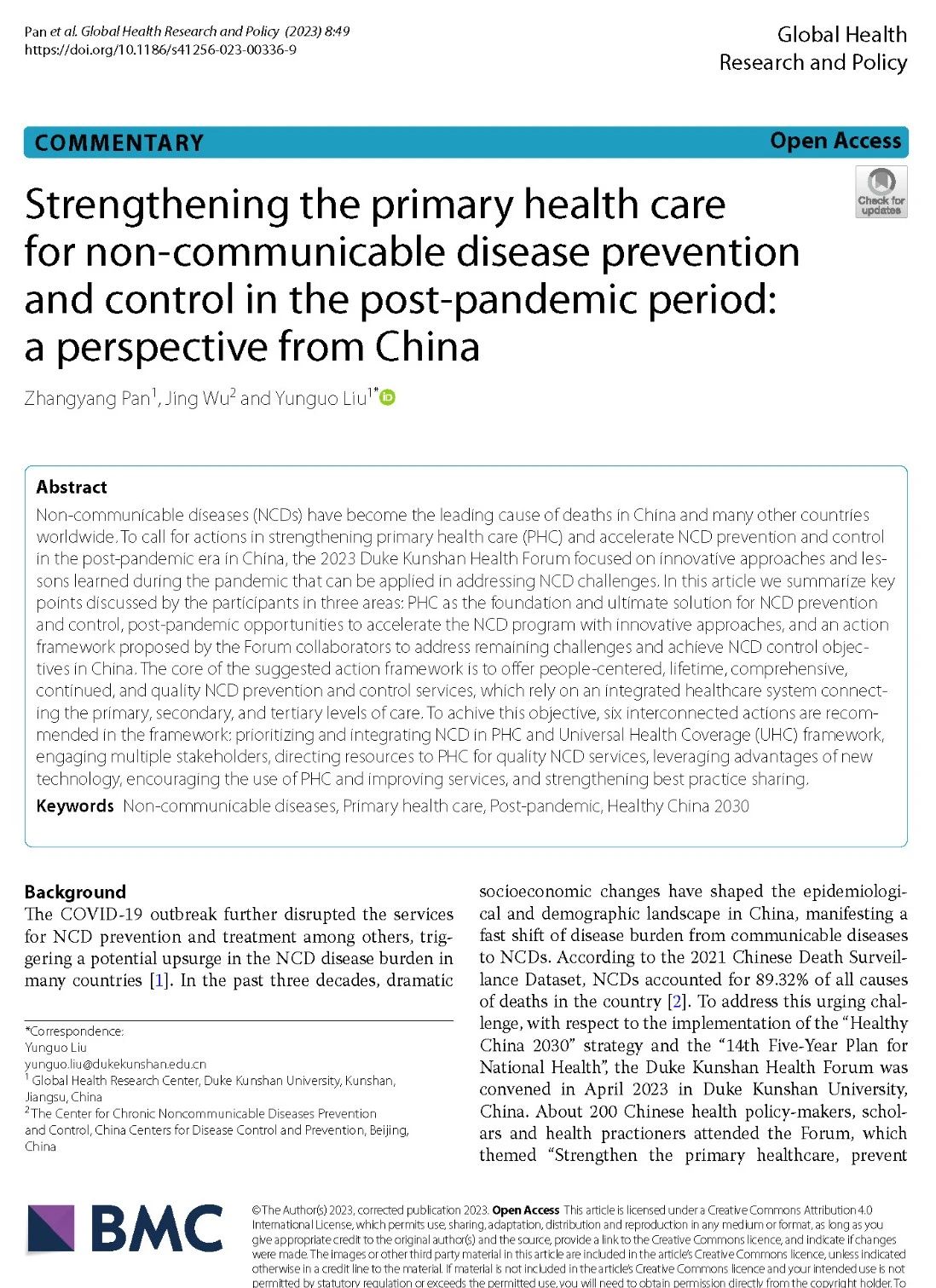
More than just academic gains, accomplishing things I’ve never done before were deeply rewarding and transformative.
The Power of Diverse Perspectives
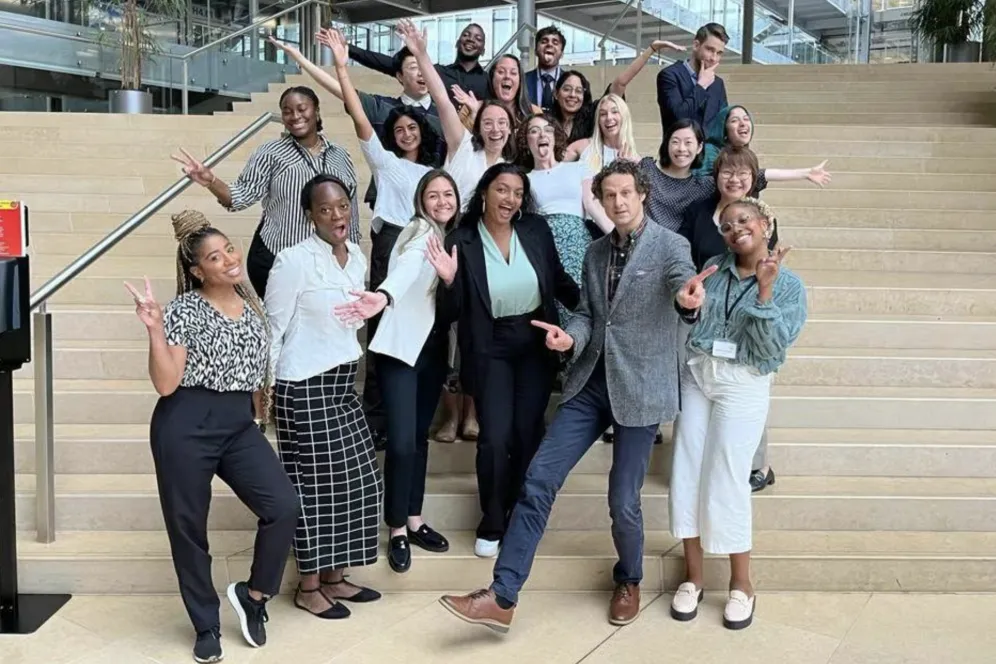
If I had to choose the most memorable part of my master’s journey, it would undoubtedly be the rich exchanges and collisions of ideas with people from different countries, professions, and academic backgrounds.
During my studies at both Duke Kunshan University and Duke University in the U.S., I especially enjoyed conversations with international students from around the world. Health systems and patient experiences are universal topics—naturally becoming a focal point of our discussions. American mothers often expressed envy over China’s four-month (or longer) statutory maternity leave. Unlike in China, where most prenatal and childbirth-related expenses are covered by public insurance, in the U.S., costs depend heavily on what’s included in one’s insurance plan—some even have to pay out of pocket for basic postpartum medications like painkillers. In the UK, while the National Health Service provides free healthcare, the waiting times for appointments and elective surgeries can stretch into years. In Tanzania, medical resources are scarce, and physicians at major hospitals work non-stop with barely a moment to breathe. These firsthand accounts offered insights that no textbook could provide—an invaluable extension of classroom learning.
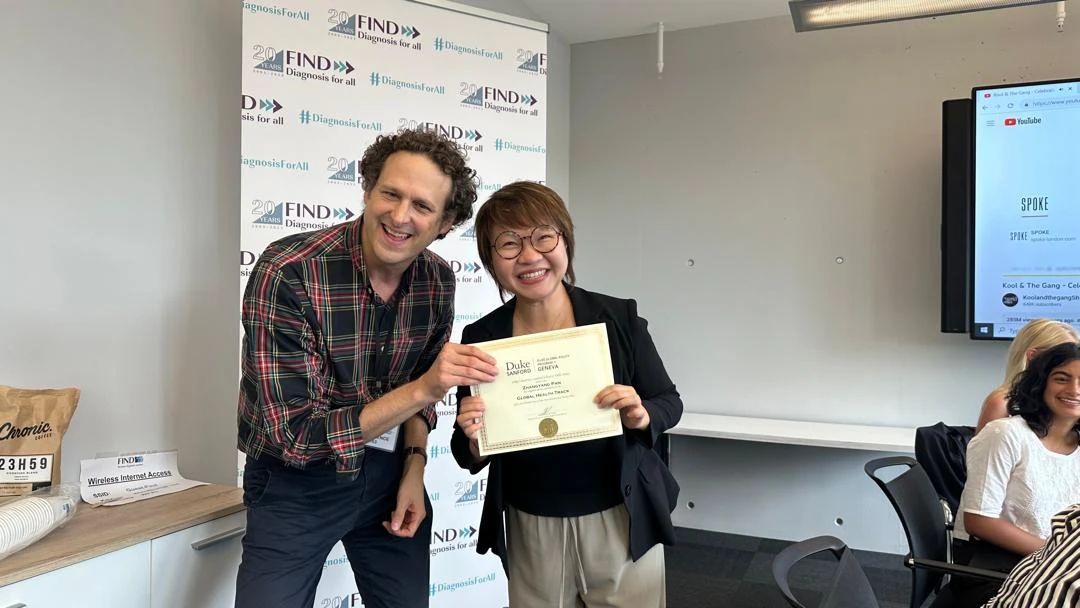
In the summer of 2023, I’m honored to be selected in the “Duke Global Policy Program in Geneva”, where I spent a week visiting international organizations and NGOs headquartered in Geneva, alongside 48 students from Duke and other top universities around the world. We engaged directly with scholars, professionals, and staff from these organizations. The biggest takeaway wasn’t just “going to Geneva,” but the chance to connect with a community of passionate individuals committed to global health.
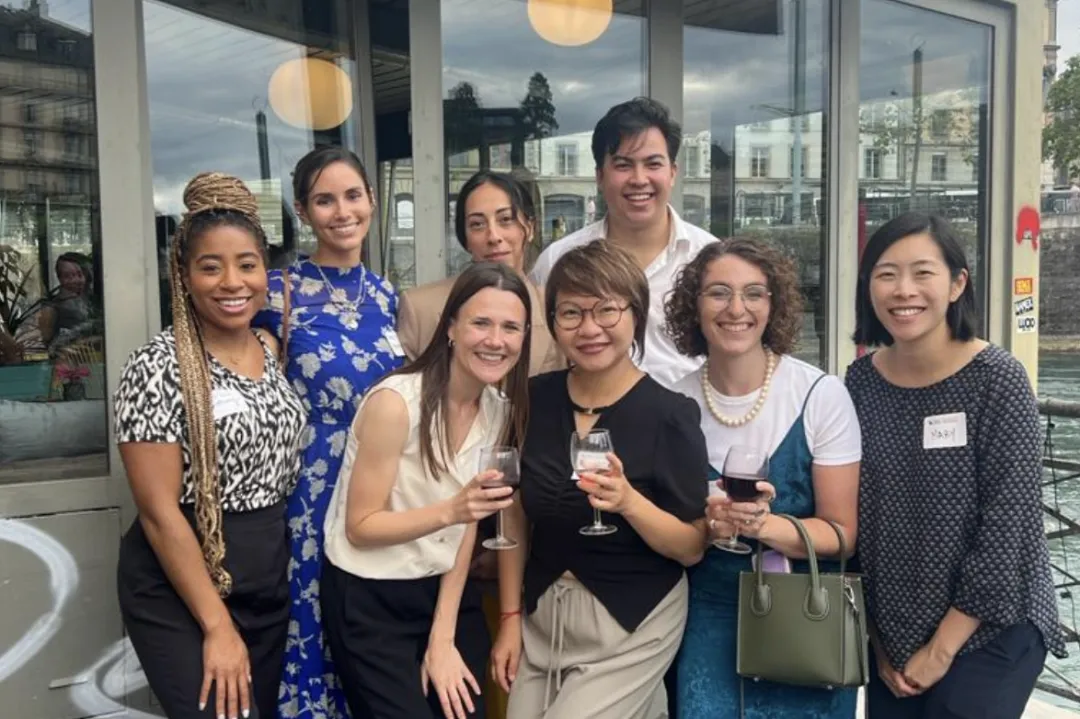
Among them were Veronica, a nurse who returned to Duke in her 50s to earn her master’s degree in nuring while working part-time after years of serving in Africa; Rehan, a Fulbright scholar from Pakistan based at the University of Wisconsin; Robi, who had completed his medical residency and was launching a global health nonprofit; Safa, newly admitted to medical school with a dream of bridging clinical work and global health practice; and Jorge, a former peacekeeping soldier now studying public policy at Duke. Our conversations covered not only global health, but also the everyday challenges we all face—family, children, academic stress, and career choices. Often, we discovered both friction and resonance in our differing cultural values, traditions, and beliefs.
Meeting people from all walks of life—this, I believe, is the true beauty of global health.
Pioneering an Untrodden Path
I currently lead communication and policy advocacy for the Innovation Lab for Vaccine Delivery Research(VaxLab) at Duke Kunshan University. Interestingly, I began this work back in 2022, right when I started my master’s program—an opportunity that came about quite by chance.VaxLab is a research initiative supported by the Bill & Melinda Gates Foundation, with a core mission to strengthen China’s National Immunization Program through high-quality scientific evidence and targeted policy advocacy. One of our key goals is to help expand the coverage of WHO-recommended vaccines so they can benefit more people—especially those in remote areas or among underserved populations—ultimately reducing the risk of infectious diseases.
I feel incredibly fortunate to work under the guidance of Professor Shenglan Tang, alongside leading public health experts from top universities both in China and abroad, as well as professionals from the Gates Foundation. My previous experience in corporate communications and media has added value to the project, helping to bridge the gap between researchers, policymakers, and the public.

In simple terms, my primary responsibility is to establish the VaxLab project’s brand within the industry and the health sector, positioning it as a knowledge-sharing platform for professionals in the field of vaccine delivery research. Based on the needs and communication styles of different media, I translate our research findings and data into clear, accessible content ready for media use. Meanwhile, I provide strategic advice and input on the design of public health policy research outputs, based on analysis of public opinion trends.
There was no established playbook for this job—no ready-made model to follow, no predecessor’s path to reference. How to conduct evidence-based policy advocacy tailored to China’s unique media landscape and policy environment was a blank slate. But that’s exactly what drew me to the role. When there’s no template to follow, I see it as an opportunity to explore and define one myself.
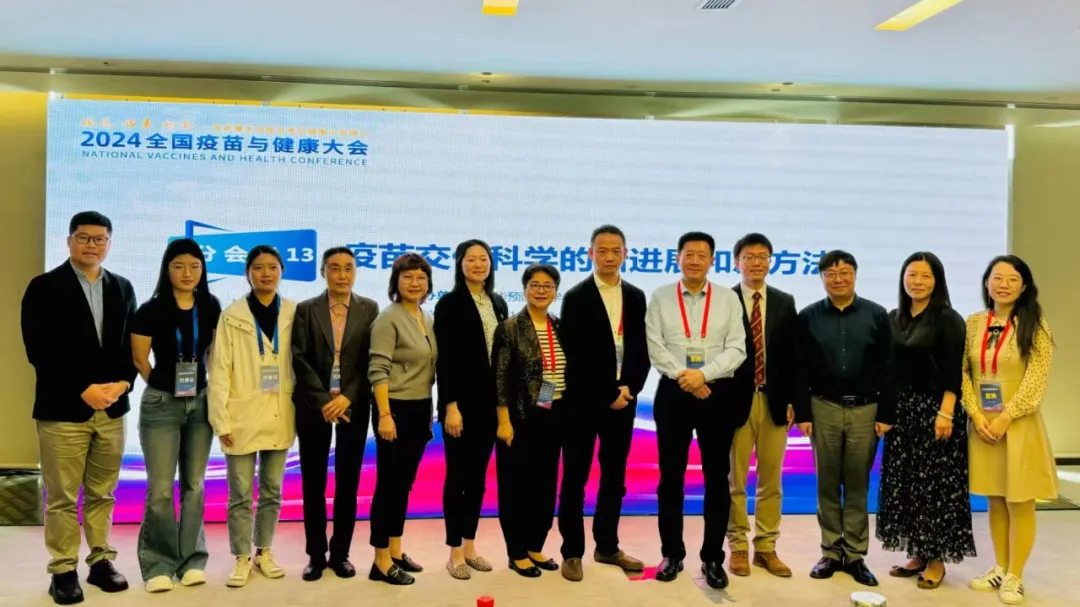
Today, when I attend conferences and hear professionals from the CDC or private sector say, “We follow VaxLab’s WeChat posts regularly—they’re truly inspiring,” it reminds me that the effort was worthwhile. I hope that one day, we’ll also witness broader shifts in China’s immunization policy as a result of this work. I’m especially grateful to every mentor in the VaxLab network and every teammate who has walked this path with me.
Contributing, even in a small way, toward a world of “health for all” is the mission of my life.
Tips and Advice for Career Track Applicants
Applying does not require a standardized graduate entrance exam, which is particularly friendly for career track applicants and saves a significant amount of preparation time. The main hurdle to overcome is the language requirement.
Some of the core courses in the Global Health program are designed for students from diverse academic and professional backgrounds. Even if you don’t have a medical background, you can still adapt and keep up.
The curriculum integrates both academic knowledge and practical experience—it’s not just a deep dive into abstract theories.
Advice for Students Interested in Healthcare Industry
Students aspiring to enter the “Big Health” are encouraged to turn their interest into action by exploring healthcare through everyday experiences, staying informed on industry trends, and actively engaging with professionals in the field.
1. Learn about medical care and health from small things around you
Healthcare is closely connected to daily life. Begin by understanding the medical journeys of family members with chronic conditions such as hypertension or diabetes—from diagnosis to treatment and prescription refills. Pay attention to your own healthcare experiences, including how health insurance works, what personal and pooled accounts are, and how medical expenses are covered.
2. Stay updated through publicly available information
Follow industry news by subscribing to official websites, WeChat accounts, or newsletters of relevant institutions. Learn about healthcare policy updates, new drug launches, pipeline developments, and emerging therapies.
3. Connect with industry professionals
Use academic and extracurricular opportunities to engage with health professionals. Attend lectures, career talks, and alumni panels hosted by Duke Kunshan University and Duke University. Seek internships and participate in conferences to gain insights into potential career paths and organizations of interest.
